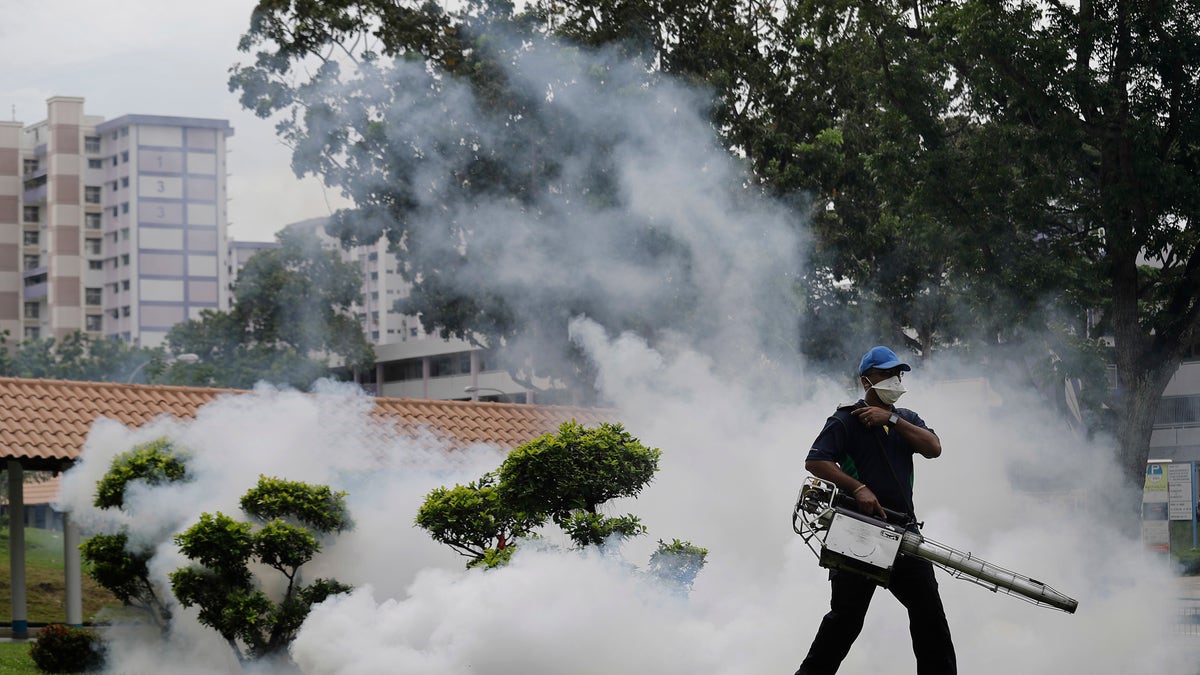
A pest control worker fumigates drains and the gardens at a local housing estate where the latest case of Zika infections were reported from on Thursday, Sept. 1, 2016, in Singapore. Indonesia is screening travelers from neighboring Singapore for the mosquito-borne Zika virus as the city-state reports a growing number of infections and its first case of a pregnant woman testing positive. (AP Photo/Wong Maye-E) (Copyright 2016 The Associated Press. All rights reserved.)
Singapore said Tuesday it is investigating the severity of its locally transmitted Zika virus, amid a rising number of cases.
Researchers concluded last week that the strain of Zika found in two patients in Singapore was not from South America, but was similar to those found in the region decades ago.
"We cannot tell at this moment whether the viruses found here cause more or less severe disease than those in South America. Further research will be needed to shed light on this," Health Minister Gan Kim Yong told Parliament.
Singapore announced its first confirmed Zika infection in May, with the virus imported by a 48-year-old man who had traveled to Brazil.
On Monday, the Ministry of Health and National Environment Agency confirmed four more locally transmitted cases, bringing the total to 333, including eight pregnant women.
"It is still early days to ascertain what the long-term trend of Zika infection will be," Gan said, stopping short of labeling the outbreak an epidemic.
"Even if we can control the present outbreak, we will need to continue to guard against imported cases as the Zika virus is still circulating among many countries, including several in this region," he said.
Last week, Gan told Channel NewsAsia that Singapore will no longer isolate all Zika patients, except when the infection is "severe or unless they have other conditions that require medical attention."
The mosquito-borne Zika virus has mild effects on most people, but can be fatal for unborn children. Infection during pregnancy is believed to result in babies with small heads — a condition called microcephaly — and other brain defects.
Every day, about 850 workers in Singapore inspect homes and worksites for possible mosquito breeding grounds. From January to July, 748,000 inspections were conducted and more than 10,000 breeding habitats were destroyed, according to official statistics.
Despite government efforts, the island nation has been included in several travel advisories because of the Zika cases, with experts fearing this will cause a dip in tourism revenue.